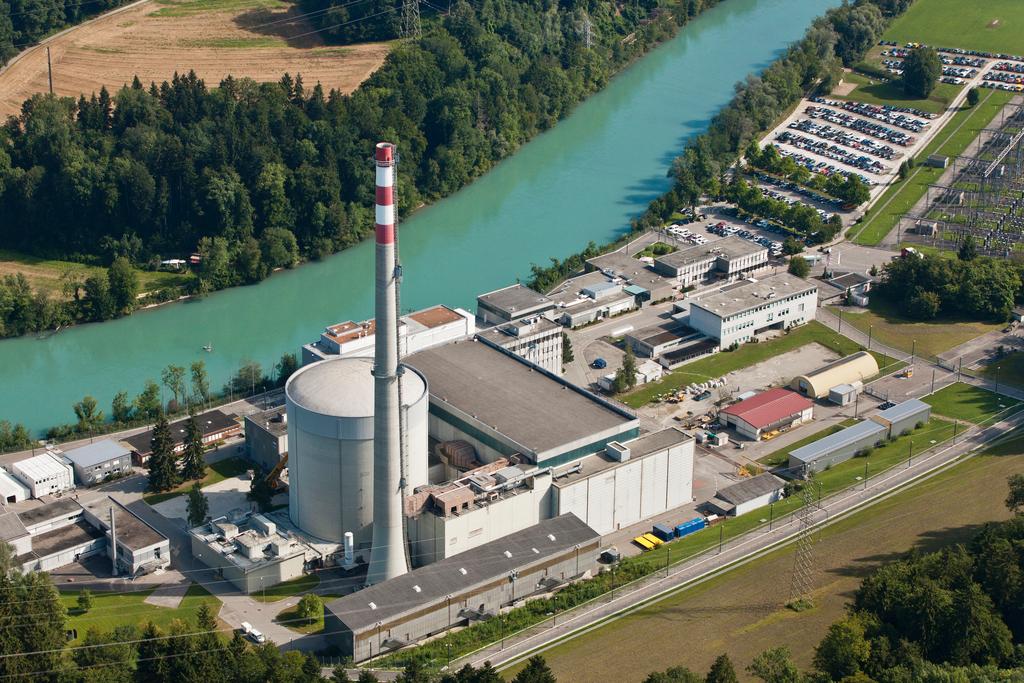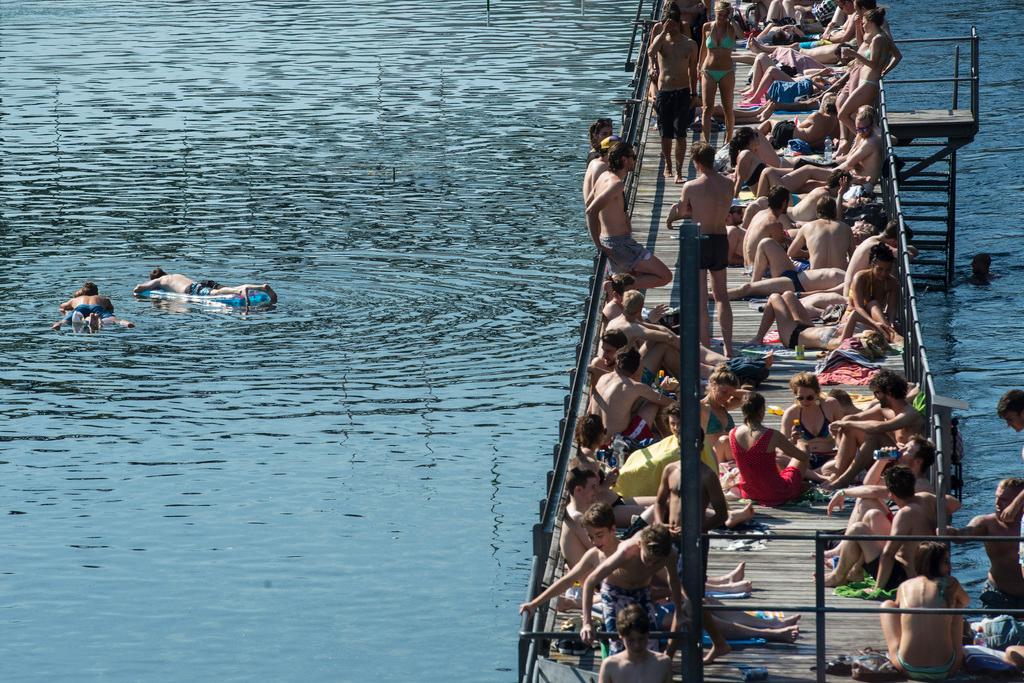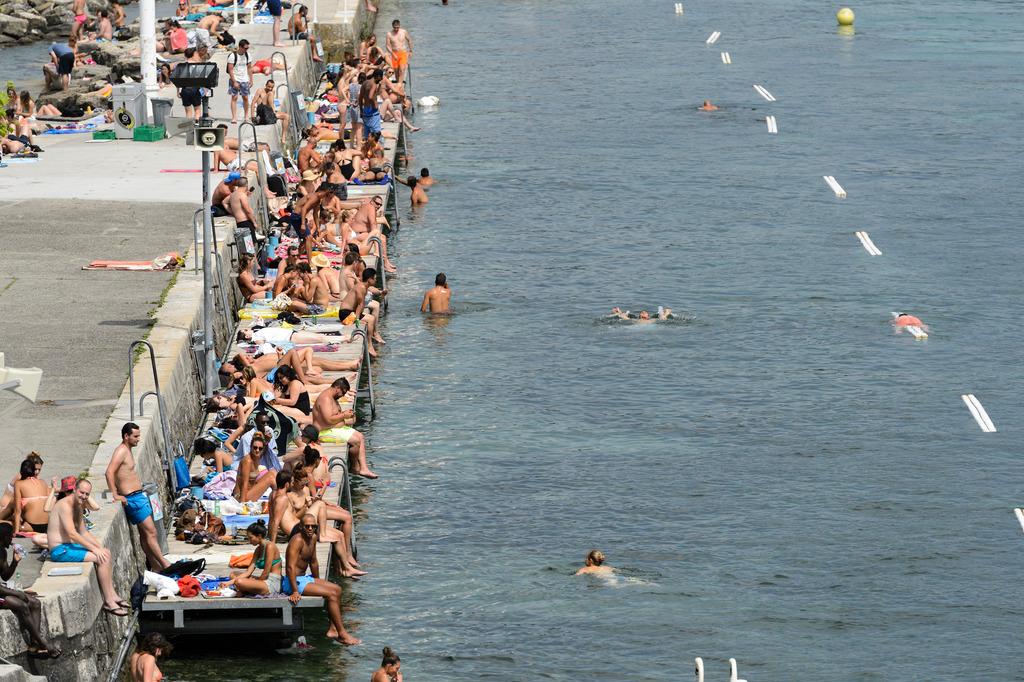Swiss heatwave causes variety of problems

Sun worshippers may be appreciating the current heatwave in Switzerland, but soaring temperatures over the past few weeks, which have regularly exceeded 30 degrees Celsius, are giving the authorities headaches for a range of reasons.
A spate of swimming accidents, the increased risk of forest fires and issues at nuclear and solar energy plants have been blamed on the hot summer.
Swiss public television, RTS, has reported that the nuclear power stations at Mühleberg, Beznau and Leibstadt have been forced to reduce power output to avoid heating up the Rhine and Aare rivers with their waste water.
The environmental measure is designed to protect aquatic life in the rivers as waste water heats up in the hot weather.
“Climate change will increase the number of problematic weather extremes that aggravate the situation at nuclear power plants and increase the risk of failures,” said Greenpeace Switzerland spokesman Florian Kasser.
While there is no danger to the public from rising temperatures, the Federal Nuclear Safety Inspectorate is preparing a report on the issue to be presented at the end of the year.
Switzerland’s solar energy reserves are also paradoxically suffering from the recent sunny weather, with the heat affecting photovoltaic plants. Power generation has marginally decreased from this source as a result of the wrong kind of hot temperatures: too hot, too fast.
Earlier this month, Geneva recorded the highest ever temperature in Switzerland north of the Alps: 39.7C. The all-time Swiss heat record of 41.5C was set on August 11, 2003, in Grono, canton Graubünden.
Drownings
The extreme weather conditions have enticed more people to cool off in Switzerland’s outdoor swimming pools and rivers. But this has come at the price of a sharp increase in drownings so far this year.
By the middle of July, 26 people had died in swimming accidents – one fewer than for the whole of last year. Nearly a third of deaths were foreigners.
As vegetation dries up in the heat, many areas of Switzerland are also on high alert for forest fires. Regions in the west of the country – Valais, Vaud, Basel, Aargau, Jura, Solothurn and parts of Bern – are deemed at the highest risk.
Some areas have banned open fires, so beloved by the Swiss for grilling sausages during hikes.

In compliance with the JTI standards
More: SWI swissinfo.ch certified by the Journalism Trust Initiative


You can find an overview of ongoing debates with our journalists here. Please join us!
If you want to start a conversation about a topic raised in this article or want to report factual errors, email us at english@swissinfo.ch.